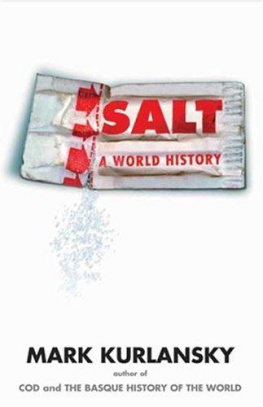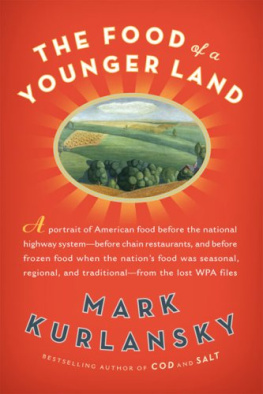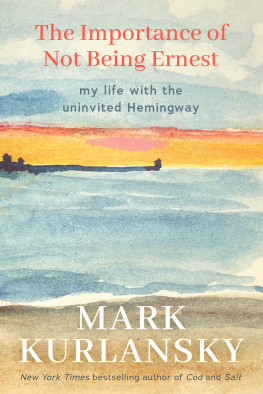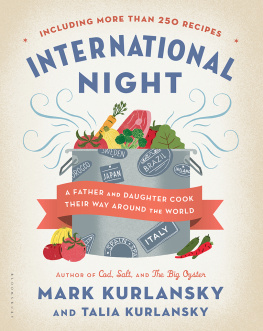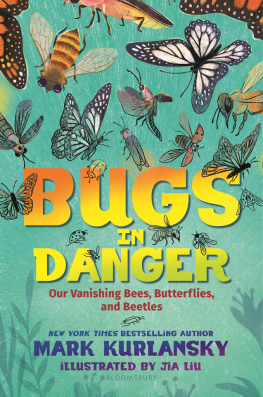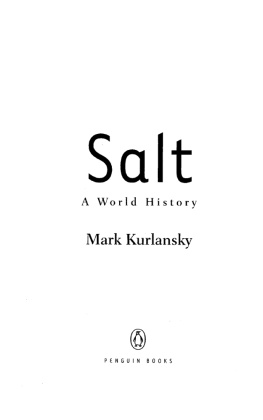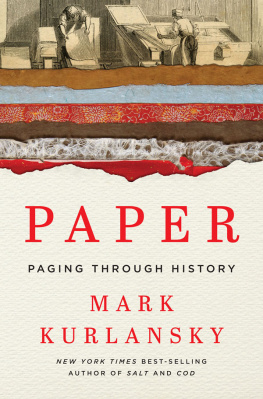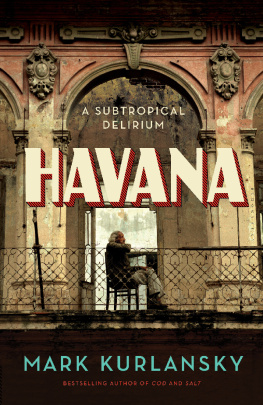Has the author really written twenty-one other books?
NONFICTION | FICTION |
Hank Greenberg | Edible Stories |
The Eastern Stars | Boogaloo on 2nd Avenue |
The Food of a Younger Land | The White Man in the Tree and Other Stories |
The Last Fish Tale |
Nonviolence | TRANSLATION |
The Big Oyster | Belly of Paris by Emile Zola |
1968 |
Salt | FOR CHILDREN |
The Basque History of the World | The Story of Salt |
Cod | The Girl Who Swam to Euskadi |
A Chosen Few | The Cods Tale |
A Continent of Islands | World Without Fish |
ANTHOLOGY |
Choice Cuts |
What?
Are These the Twenty
Most Important Questions
in Human History
Or
Is This a Game of Twenty Questions?
Mark Kurlansky

Copyright 2011 by Mark Kurlansky
All rights reserved. No part of this book may be used or reproduced in any manner whatsoever without
written permission from the publisher except in the case of brief quotations embodied in critical articles
or reviews. For information address Walker & Company, 175 Fifth Avenue, New York, New York NY 10010.
Published by Walker Publishing Company, Inc., New York
Excerpts from The Selected Poems of Federico Garca Lorca reprinted by permission of New Directions
Publishing Corporation.
Excerpt from Perfect Joy by Thomas Merton, from The Way of Chuang Tzu, copyright 1965 by the
Abbey of Gethsemani. Reprinted by permission of New Directions Publishing Corporation.
Is There Any Easy Road to Freedom? from The Complete Poems of Carl Sandburg: Revised and
Expanded Edition, copyright 1970, 1969 by Lilian Streichen Sandburg, trustee. Reprinted by permission
of Houghton Mifflin Harcourt Publishing Company.
Excerpt from Ghetto by Guy Tirolien in The Negritude Poets: An Anthology of Translations from the
French copyright 1975 by Ellen Conroy Kennedy. Reproduced with permission of Ellen Conroy
Kennedy in the format tradebook via Copyright Clearance Center.
LIBRARY OF CONGRESS CATALOGING-IN-PUBLICATION DATA
Kurlansky, Mark.
What? : are these the twenty most important questions in human history, or, is this a game of twenty
questions? / Mark Kurlansky.1st U.S. ed.
p. cm.
Includes index.
ISBN 978-0-8027-7906-9(hard cover)
1. PhilosophyMiscellanea. I. Title.
BD31.K87 2011
100dc22
2010036450
First published in the U.S. by Walker Publishing Company in 2008
Published simultaneously in the United Kingdom by Orion with the title Other Peoples Daughters
This e-book edition published in 2011
E-book ISBN: 978-0-8027-7967-0
Visit Walker & Companys Web site at www.walkerbooks.com
To whats her name? Or was it whats his name?
What does this say?
Sie sind so jung, so vor allem Anfang, und ich mchte Sie, so gut es ich kann, bitten, lieber Herr, Geduld zu habeb gegen alles Ungelste in Ihrem Herzen und zu versuchen, die Fragen selbst liebzuhaben wie verschlossene Stuben und wie Bcher, die in einer sehr fremden Sprache geschrieben sind. Forschen Sie jetzt nicht nach den Antworten, die Ihnen nicht gegeben werden knnen, weil Sie sie nicht leben knnten. Und es handelt sich darum, alles zu leben. Leben Sie jetzt die Fragen. Vielleicht leben Sie dann allmhlich, ohne es zu merken, eines fernen Tages in die Antwort hinein.
Rainer Maria Rilke, Briefe an einen jungen Dichter
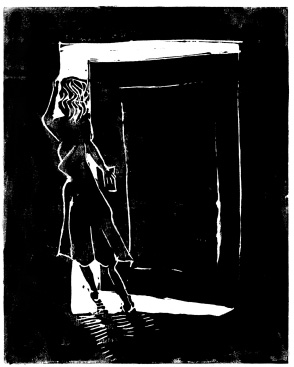
Whats going on in there?

Is a book an answer, or is it a question?
Question One
How to Begin?
Did you ever thumb through a stack of the great books and look to see how many begin with a question? Isnt such a book hard to find? What does it tell us that neither the bible of capitalism, Adam Smiths eighteenth-century The Wealth of Nations, nor the bible of communism, Karl Marxs nineteenth-century Capital, nor for that matter, the Bible itself, begins with a question? After all, if we dont start with a question, how can we find an answer?
Suppose no one asked a question, Gertrude Stein postulated; what would be the answer? Dont we need questions to get answers? And shouldnt we distrust an answer that comes without a question? An answer without a questionwasnt that Albert Camuss definition of charm, a way of getting the answer yes without having asked any clear question?
Is there an actual shortage of questions in literature or is it in part that we dont see them? Do we use question marks because without them we do not recognize a question when we see it? Did Gertrude Stein disagree when she asked, A question is a question, anybody can know that a question is a question and so why add to it the question mark when it is already there when the question is already there in the writing? Isnt this how I have always felt about exclamation points?!?
Why do we read books, or as Virginia Woolf asked in Jacobs Room: What do we seek through millions of pages?? Couldnt it be argued that all books are intended as answers, though only a few of them state the question? Isnt it in the nature of human beings, as wolves hunt in packs and giant whales migrate with the seasons, to search for answers? Dont we need to ask questions in order to get answers? Isnt everybody too eager to tell us without first pondering the uncertainties?
Why should not we also enjoy an original relationship to the universe? What is the challenge unleashed in this opening question of Ralph Waldo Emersons 1841 essay Nature? To achieve such an original relationship, wouldnt we have to ask once again all of the great questions that have been asked before? Why, Emerson asks, should not we have a poetry and a philosophy of insight and not of tradition, and a religion of revelation to us and not the history of theirs? Would not such a new and original way of thinking require a great ability to ask those great questions? Why are we here? Why is all of this here? Why do we die? What is death? What does it mean that outer space is infinite and what is after infinity? What is the significance of winter and spring? What is the significance of bird flight, why does matter decay, and how is our life different from that of a mosquito? Is there an end to these questions or is questioning as infinite as space? Is our questioning skill up to this task or must we depend on better questioners that have gone before us?
Why is Plato the rare thinker who does start with a question? Doesnt it set the mind spinning to be immediately confronted with a question, for example, in the opening line of Laws: Tell me, stranger, is a God or some man supposed to be the author of your laws?? Wouldnt such a question lead to a far-ranging discussion of government and laws, their purpose, authority, and rightful boundaries?
Next page

